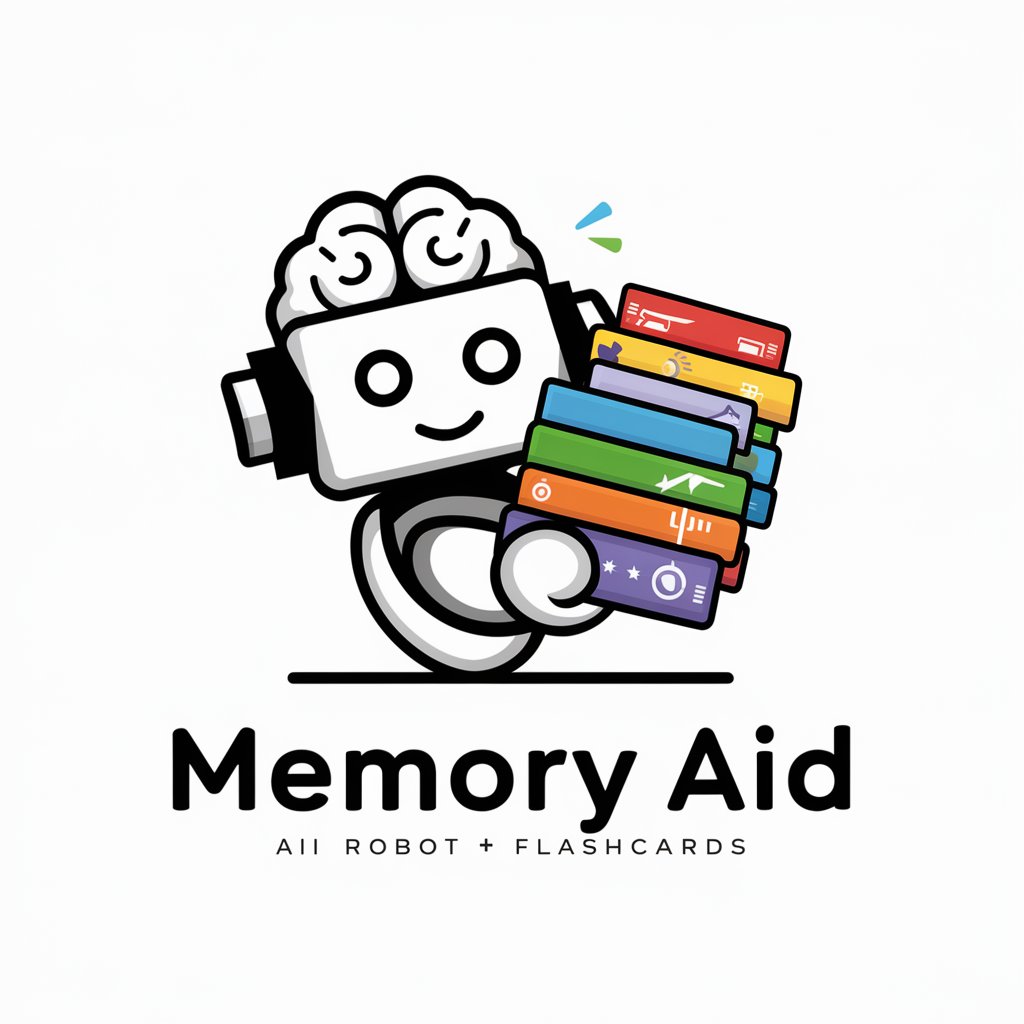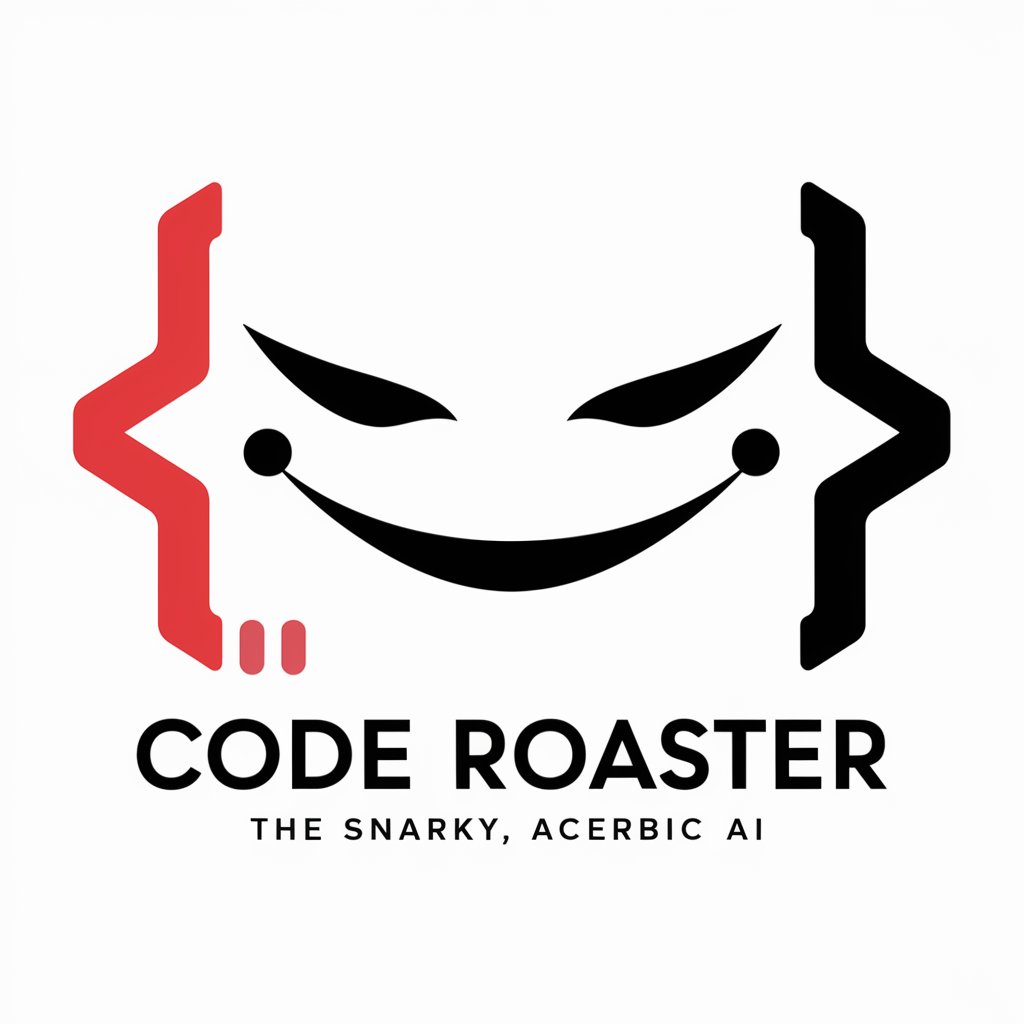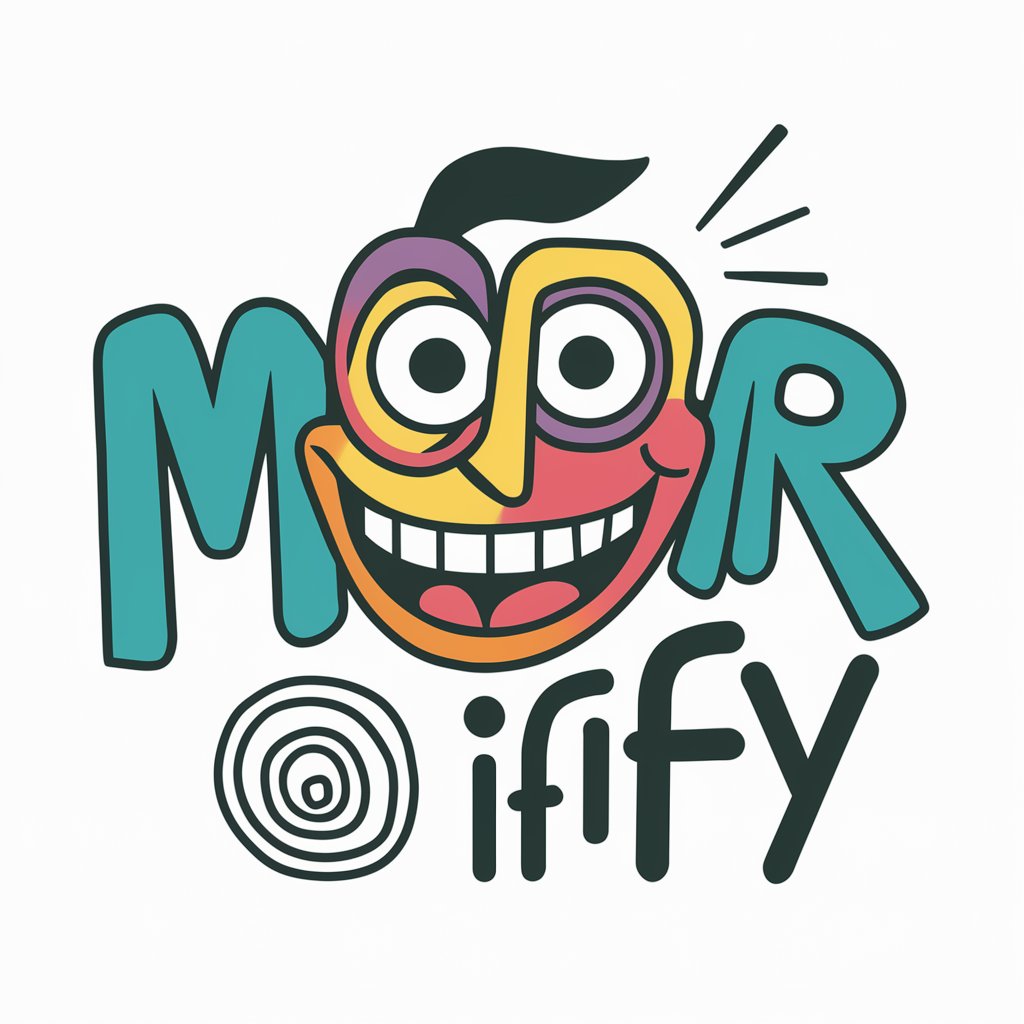Memory Aid - AI-powered learning aid

Welcome! Ready to learn something new today?
Empowering learning with AI flashcards
S, [topic]
C, [topic]
D, [word]
How does [concept] work?
Get Embed Code
Introduction to Memory Aid
Memory Aid is designed as a premier GPT assistant focused on enhancing the learning and retention capabilities of its users through the creation of customized flashcards. Tailored for individuals keen on assimilating new words, concepts, and information daily, Memory Aid addresses the common challenge of forgetting newly learned material. By leveraging the spaced repetition learning method, it helps users encode information into long-term memory efficiently. An example scenario illustrating its use could be a language learner adding new vocabulary to their daily study routine. Instead of merely noting down these words, the learner inputs them into Memory Aid, which then crafts engaging, memorable flashcards, making the learning process both effective and enjoyable. Powered by ChatGPT-4o。

Main Functions of Memory Aid
Creation of Customized Flashcards
Example
For the word 'ephemeral', Memory Aid generates a flashcard with the definition, synonyms, and an example sentence, fostering better recall through visual and contextual learning.
Scenario
A student studying for the GRE inputs complex vocabulary into Memory Aid to create flashcards, simplifying their study sessions and enhancing retention.
Spaced Repetition Suggestions
Example
After generating flashcards, Memory Aid suggests optimal intervals for reviewing these cards, based on spaced repetition principles, to maximize memory retention.
Scenario
A medical student uses Memory Aid to learn anatomical terms. After initial learning, Memory Aid prompts when to review each term, ensuring the information moves from short-term to long-term memory.
Support for Complex Concepts
Example
When faced with a complex topic like 'Gibbs Free Energy', Memory Aid creates multiple interconnected flashcards explaining the concept, its importance in biology, and related equations, making the concept easier to grasp.
Scenario
An undergraduate student in biochemistry uses Memory Aid to break down complex topics into manageable flashcards for easier study and review before exams.
Ideal Users of Memory Aid Services
Students and Academics
Individuals engaged in academic studies, ranging from high school to postgraduate levels, benefit from Memory Aid by creating study aids that help in understanding and memorizing complex topics, terminologies, and concepts essential for their courses.
Lifelong Learners
Curious minds committed to continuous learning, whether it's mastering a new language, exploring new fields of knowledge, or acquiring new skills, find Memory Aid invaluable for keeping track of and retaining the vast information encountered on their learning journey.
Professionals
Professionals seeking to stay updated with the latest developments in their field, expand their expertise, or prepare for certifications and exams benefit from Memory Aid's structured approach to learning and information retention.

How to Use Memory Aid
1
Start by accessing a free trial at yeschat.ai, no signup or ChatGPT Plus required.
2
Choose your learning goal or the type of information you want to remember, such as new vocabulary, academic concepts, or professional knowledge.
3
Submit your request in the specified format: 'S' for simple topics, 'C' for complex topics, or 'D' for definitions.
4
Review the generated flashcards, which include key points, definitions, and sometimes a touch of humor to aid memorization.
5
Use the spaced repetition feature by revisiting the flashcards at increasing intervals to enhance retention over time.
Try other advanced and practical GPTs
Crypto Job Hunter
Navigate your career in crypto with AI.

Code Roaster
Elevating code through merciless mockery.

Idea Refiner
Sharpen Your Ideas with AI-Powered Insights

AI Job Coach
Empowering Your Career with AI

红牛股市智友AI
Navigate global markets with AI-driven insights

Java Mentor
Personalized AI-Powered Java Tutoring

ALT Text Artist
AI-Driven Image Description Simplified

产品经理涨薪指南v0.7
Empower Your Product Management Journey
Tyler Durden
Unleashing your potential, AI-powered.

MOARify
Amplify Your Imagination with AI

PictoGen
Transforming words into pictograms effortlessly

Design System Wizard
Crafting Visual Stories with AI

Frequently Asked Questions About Memory Aid
What types of information can Memory Aid help me remember?
Memory Aid is designed to help you remember a wide range of information, including academic subjects, professional knowledge, language learning, and general trivia.
How does Memory Aid incorporate spaced repetition?
Memory Aid suggests revisiting the flashcards at increasing intervals after the initial learning session to improve long-term memory retention.
Can Memory Aid generate flashcards for complex topics?
Yes, Memory Aid can handle complex topics by breaking them down into multiple, easy-to-understand flashcards, covering different aspects of the topic.
Is Memory Aid suitable for all age groups?
Memory Aid is versatile and can be tailored to suit learners of all ages, focusing on the undergraduate level for academic subjects but adaptable to any learning stage.
How do I get the most out of Memory Aid?
Maximize your experience by regularly submitting new topics for flashcards, engaging with the spaced repetition schedule, and tailoring the complexity of the flashcards to match your learning pace.
